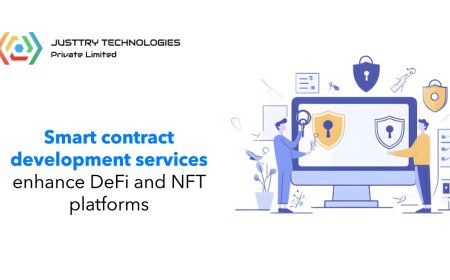Business Accountants and Crypto Accountants: Navigating Financial Management in Evolving Markets

Introduction
In the complex world of finance, accountants play a critical role in ensuring businesses maintain accurate records, comply with regulations, and make informed financial decisions. Traditionally, business accountants have been the backbone of corporate financial management, handling bookkeeping, financial reporting, and tax planning. However, with the advent of digital currencies and blockchain technology, a new specialization has emergedcrypto accountants. These professionals are adapting rapidly to the unique challenges posed by cryptocurrencies, leveraging technological advancements to enhance their services.
Business Accountants: The Pillars of Corporate Finance
Business accountants provide essential services that span the entire financial lifecycle of a company. Their responsibilities include:
Financial Reporting: Preparing balance sheets, income statements, and cash flow statements.
Tax Preparation and Planning: Ensuring compliance with tax laws and optimizing tax liabilities.
Auditing: Verifying financial statements for accuracy and adherence to regulations.
Budgeting and Forecasting: Assisting in strategic planning through financial projections.
Regulatory Compliance: Ensuring adherence to regulatory standards across different jurisdictions.
Advancements in accounting software and cloud technology have revolutionized traditional practices, enabling real-time data access, remote collaboration, and automation of routine tasks. Tools like QuickBooks, Xero, and SAP have streamlined processes, increasing efficiency and accuracy.
The Emergence of Crypto Accountants
As cryptocurrencies gained mainstream attention, the need for specialized accounting services tailored to digital assets became evident. Crypto accountants focus on:
Tracking Digital Assets: Managing portfolios spanning various cryptocurrencies.
Tax Compliance: Navigating complex tax implications of crypto transactions, such as capital gains, income recognition, and reporting obligations.
Valuation and Record Keeping: Accurately recording the fair value of digital assets amid volatile prices.
Auditing Blockchain Transactions: Verifying transactions using blockchain explorers and integrating with traditional financial systems.
Regulatory Guidance: Advising on compliance with evolving crypto regulations and anti-money laundering (AML) standards.
Enhancements in Crypto Accounting
The field of crypto accounting is rapidly evolving, driven by technological innovations and regulatory developments. Key enhancements include:
1. Advanced Tracking and Portfolio Management Tools
Modern platforms like Blockfolio and CoinTracker enhance the ability to monitor multiple digital assets seamlessly. These tools integrate with exchanges and wallets, providing real-time valuations and transaction histories, simplifying the reconciliation process.
2. Blockchain Analytics and Verification
Sophisticated blockchain analysis tools enable accountants to verify transactions, trace digital asset flows, and detect suspicious activities. This transparency supports audit processes and enhances compliance.
3. Automated Tax Reporting Solutions
Tax software such as CryptoTrader.Tax and TokenTax automate the calculation of capital gains and losses, generate tax forms, and ensure regulatory compliance, reducing manual errors and saving time.
4. Integration with Traditional Accounting Systems
Interoperability between crypto accounting tools and conventional ERP systems has improved, allowing seamless consolidation of digital and traditional financial data.
5. Regulatory and Compliance Advancements
Regulators worldwide are introducing clearer guidelines for crypto reporting and taxation. Many crypto accountant platforms incorporate these changes, ensuring that firms stay compliant with evolving laws.
Future Outlook
The synergy between traditional business accounting and crypto-specific services is expected to deepen as blockchain technology matures. AI and machine learning will further enhance data analysis, risk assessment, and compliance monitoring. Additionally, the development of standardized global crypto regulations will streamline accounting practices and reduce compliance complexities.
Conclusion
As businesses increasingly adopt digital currencies and blockchain technology, the role of accountantsboth traditional and crypto-specializedbecomes more vital than ever. Continuous technological advancements are empowering accountants to deliver more precise, efficient, and compliant financial services. Staying abreast of these enhancements will enable professionals to capitalize on emerging opportunities and support clients navigating the dynamic landscape of digital finance.










































